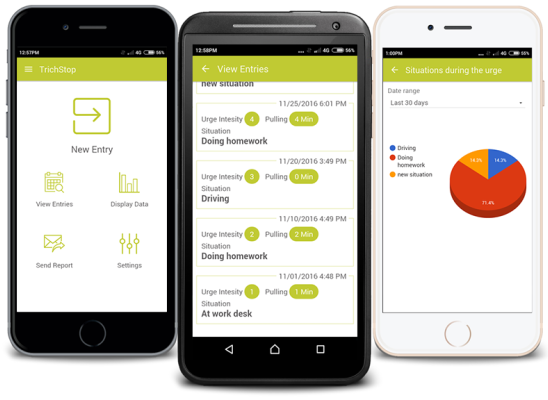Medications that may aggravate hair pulling

Online test
Find out the severity of your symptoms with this free online test
Trichotillomania (TTM) or compulsive hair pulling disorder can result in balding and is often very distressing to the individual. Many experience social and/or functional impairment. While it is still unclear what the exact cause of trich and other body focused repetitive behaviors (BFRBs) are, research suggests that there may be a strong neuro-biological component. Reneta Slikboer from Swinburne University of Technology in Melbourne analyzed about 12 studies to find out how selective serotonin reuptake inhibitor (SSRI) anti-depressant drug called fluoxetine works for some patients. She conducted a meta-analysis and was shocked to find out that the medicine is not of much use for treating TTM. She claimed that the medicine might even increase the symptoms. Hence more research into the area is suggested.
Different drugs for different people
The Food and Drug Administration (FDA) has not approved any specific medicines to treat TTM. Some medication such as anti-dpressants, do enable patients to control their symptoms. However what works for one person will not necessarily work for the next, and any medication suggested by the physician must be analyzed in terms of benefits and possible side effects. In one research a patient was given the anti-depressant fluoxetine to treat TTM but there was hardly any improvement, whereas Bupropion-SR worked well for the condition.
Links to ADHD
TTM has also been associated with attention deficit hyperactivity disorder (ADHD) and impulsive behavior. Adderall is a psychostimulant that is recommended for the treatment of ADHD. In general Adderall is very effective in treating the symptoms of ADHD with little side effects. But there are possible side effects such as nervousness, restlessness, excitability, dizziness, anxiety, among others. In one case, a 12 year old girl developed trichotillomania symptoms shortly after taking Adderall. The physician discontinued Adderall and an alternative medicine was recommended, with positive results. Other medications that have been reported to have similar results are Concerta and Ritalin. Usually a change or discontinuation of the medication reduces the hair pulling behavior. The catch 22 is that there is little other alternative for the treatment of ADHD and can make a big difference in the lives of those suffering with ADHD.
Alternatives to medication
Any condition that prevents you from living your life in a normal manner can be quite disturbing and depressing. One feels ashamed, embarrassed and/or sometimes tries to avoid social activities so that he/she does not draw any attention from others. In such cases the patient is emotionally distressed and needs support from his loved ones. Social support is considered to be one of the best ways to treat TTM. Support from family and friends can help a patient cope with the challenges of the condition. The patient suffers from anxiety, depression and embarrassment. Hence support and encouragement from loved ones can help the patient improve his/her self-image. No matter what disease you have or whatever disorder you are experiencing, you must seek immediate help. As far as medication is concerned make sure you are aware of the usage, dosage, limitation and side effects. Tell your physician about all the medications that you have taken in the past and the ones that you are taking currently as different medicines can have different results when taken in combination. Some can have a negative impact and can further aggravate the condition. Thus it is very important to share all your medications with your physician so that he/she can recommend the right dosage.
concerned make sure you are aware of the usage, dosage, limitation and side effects. Tell your physician about all the medications that you have taken in the past and the ones that you are taking currently as different medicines can have different results when taken in combination. Some can have a negative impact and can further aggravate the condition. Thus it is very important to share all your medications with your physician so that he/she can recommend the right dosage.
Whenever you start a new medicine, keep a check on your health. See how you feel with the new medicine for a week. You could keep a diary and record how you felt after the new medicine on a daily basis. For example, if you have diabetes, the medicine for TTM may have an impact on your diabetes. Hence firstly, you must inform your physician about your condition and the medicine you are taking for diabetes. If the two medicines can be taken together, do keep a check on your diabetes after starting the medicine for TTM.
Seeking help on time is crucial to ensure that the condition does not worsen. Ask a family member or a friend to keep a check on you and to inform you and your physician about any unusual changes in your mental or physical health. Medicines that aggravate your TTM should be completely avoided and help should be taken immediately to resolve the issue.
Online test
Find out the severity of your symptoms with this free online test
Start your journey with TrichStop
Take control of your life and find freedom from hair pulling through professional therapy and evidence-based behavioral techniques.
Start Now



